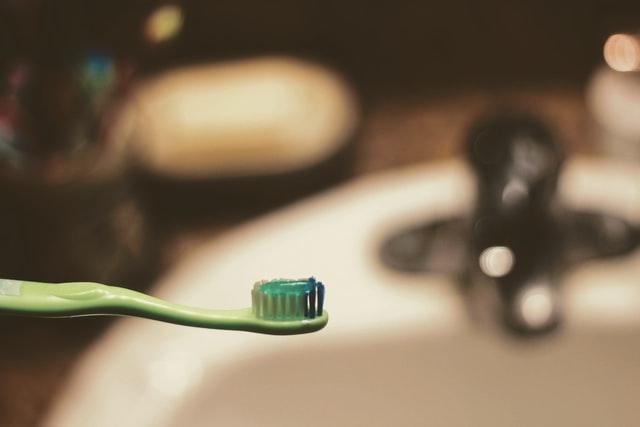Toothpaste.
We all use it on a daily basis.
In fact, some people use it more than twice per day.
It’s pretty much the accepted method for cleaning your teeth.
But is it possible that it contains some hidden health downsides?
In this post, that’s exactly what we’re going to explore.
Let’s break it down and figure out exactly how good toothpaste really is for you.
The Basics: Health Benefits And Drawbacks of Toothpaste
So, why do we use toothpaste to begin with?
Well, the answer to pretty much be summarized in one word.
Fluoride.
According to an article that was published on healthline.com, Fluoride is “a naturally occurring mineral that can be found in most water sources like lakes, rivers, and the ocean.”
Technically, it is the negative ion of the element fluorine.
But some people doubt whether or not fluoride is actually good for you.
In fact, there are companies that produce fluoride-free toothpaste simply because they believe that fluoride is an unnatural and unhealthy ingredient to put into your body.
But medical experts actually tend to disagree with this sentiment.
According to Edmond Hewlett, professor of restorative Dentistry at the University of California Los Angeles School of Dentistry, in a quote he gave Healthline.com on the topic…
“I’m concerned that individuals choosing these products are missing out on the proven benefits of fluoride for cavity prevention… As a healthcare provider, my patients’ health and wellness is of primary importance, and I want them to benefit from the best that dental science has to offer. Fluoride is a shining example.”
See, fluoride isn’t just present in toothpaste.
It’s also included in many public water systems.
In fact, according to the ADA, studies have shown that “water fluoridation continues to help prevent tooth decay by at least 25%,” in both adults and children.
Are There Any Health Risks Associated With Fluoride?
There are a lot of people who have different beliefs about this question.
There are even rumors on the internet that consuming fluoride can ‘calcify’ your pineal gland.
But are they true?
According to healthline.com, excessive fluoride intake can lead to a problem called fluorosis.
To put it simply, excessive fluoride consumption can put you at a greater risk for:
- Skeletal Fluorosis
- Dental Fluorosis
- Bone Fractures
- Specific types of cancer
- Impaired brain development
The truth of the matter is that water fluoridation is a controversial topic.
But most experts agree that it’s still more useful than harmful, and that it’s unlikely to cause any long-term negative health risks.
How Can You Avoid Using Too Much Toothpaste?
At the end of the day, toothpaste is actually pretty good for your teeth.
But you should also take steps to avoid taking-on too much fluoride.
To avoid this, make sure that you only use toothpaste as directed.
Yeah, there’s a lot of noise and chatter about toothpaste online.
But according to experts, it seems that it’s actually pretty safe, as long as you don’t overdo it and generally just use it as directed.
The best way to do this? Only use toothpaste twice per day. And don’t swallow it! Instead, rinse and spit to get excess fluoride out of your mouth before ingesting it.












